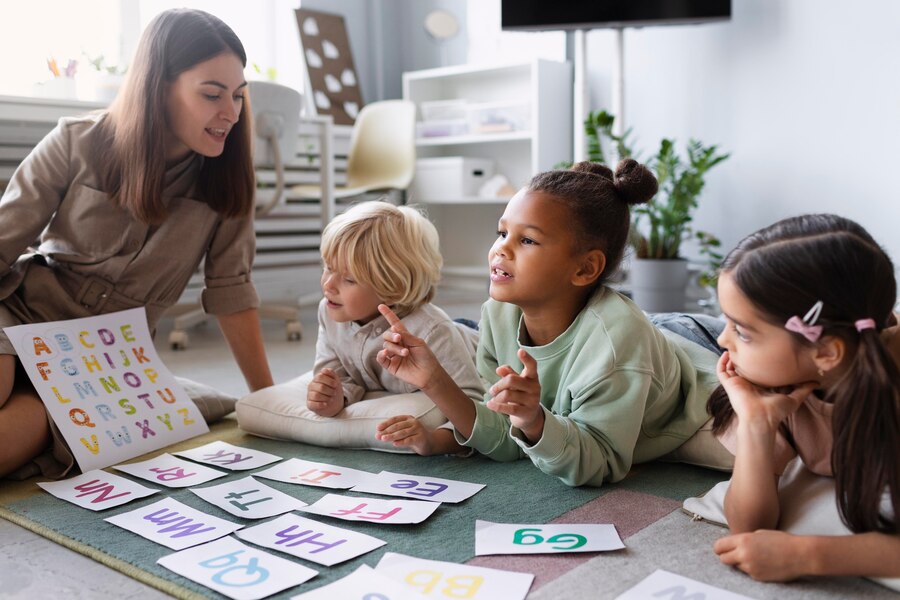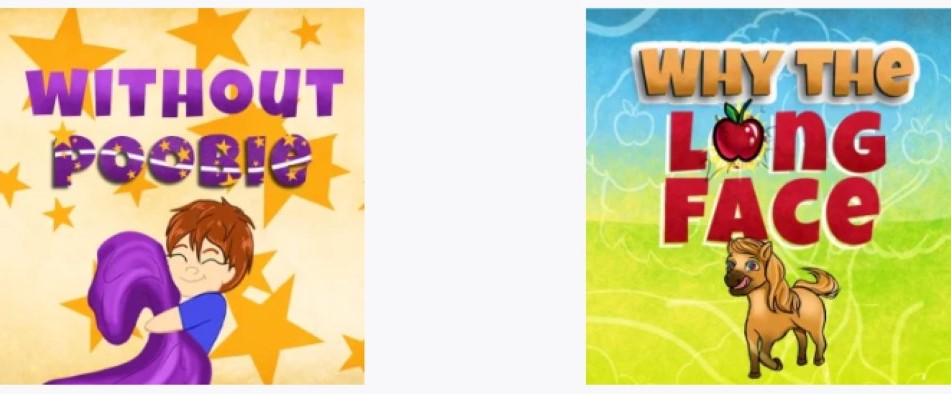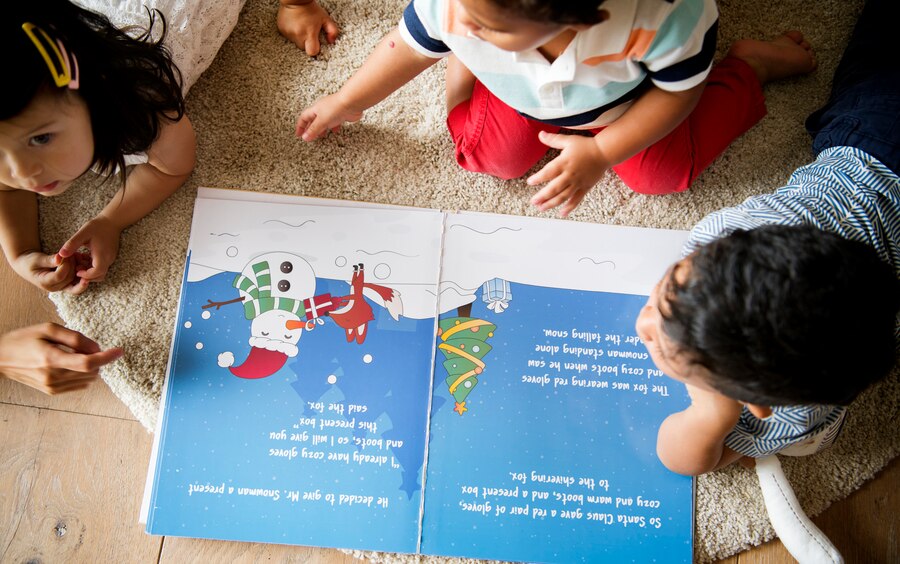The significance of social skills cannot be overstated. As young children navigate their first interactions with peers and adults, they embark on a journey of social development that lays the foundation for future success.
While traditional academic subjects like reading and math are undeniably important, the cultivation of social-emotional skills is equally crucial in preparing children for the complexities of the modern world.
By delving into the world of social skills literature, educators, parents, and caregivers can unlock the potential to shape young minds and foster positive social behaviors that endure beyond the preschool years.
Importance of Social Skills Development in Preschoolers
In the dynamic landscape of early childhood development, the significance of social skills in preschoolers cannot be overstated. These formative years serve as a crucial period for laying the groundwork for future social interactions and emotional well-being.
1. Foundation for Future Success
The preschool years mark a critical period in a child’s social-emotional development.
As they interact with peers and adults, preschoolers begin to form the building blocks of social competence that will serve as the foundation for future success in academics, relationships, and life.
2. Navigating Social Complexity
Proficiency in social skills is essential for navigating the complexities of social interactions.
Preschoolers who develop strong social-emotional competencies are better equipped to communicate effectively, resolve conflicts, and collaborate with others, setting them on a path to thrive in diverse social environments.

3. Promoting Well-Being
Social-emotional skills not only contribute to academic achievement but also play a significant role in overall well-being and mental health.
Preschoolers who possess robust social skills demonstrate greater resilience, self-regulation, and empathy, empowering them to manage stress, navigate challenges, and form positive relationships throughout their lives.
The Role of Social Skills Books in Early Childhood Education
Social skills books serve as indispensable companions in the journey of early childhood accessible education, offering captivating narratives and relatable characters to engage young minds.
Within these pages, children embark on a transformative exploration of empathy, communication, and cooperation, essential skills for navigating the intricacies of social interactions.
1. Engaging Narratives
Social skills books captivate young readers with engaging narratives featuring relatable characters and real-life scenarios.
Through storytelling, children are drawn into the world of the book, where they can empathize with characters, identify with their experiences, and vicariously explore different social situations.
2. Modeling Positive Behaviors
Social skills books serve as models for positive social behaviors, demonstrating examples of kindness, empathy, cooperation, and respect.
By observing how characters navigate various social challenges, preschoolers learn by example and internalize valuable lessons about interpersonal relationships and communication.
3. Interactive Learning
Many social skills books incorporate interactive elements such as discussion questions, role-playing activities, and problem-solving scenarios.
These interactive components encourage children to actively participate in the learning environments, fostering critical thinking skills, perspective-taking, and social awareness.

4. Promoting Inclusion and Diversity
It’s essential for children to develop an appreciation for differences and cultivate inclusive attitudes.
Social skills books often feature characters from diverse backgrounds, experiences, and abilities, providing opportunities for children to learn about empathy, acceptance, and cultural diversity.
Key Themes in Social Skills Books for Preschoolers
Within the pages of social skills books for preschoolers lie rich tapestries of fundamental themes crucial for early development. These narratives intricately weave together lessons on empathy, communication, and conflict resolution, guiding young readers on a journey of social discovery.
A. Empathy and Understanding
Many social skills books emphasize the importance of empathy and understanding in building positive relationships.
Through stories that highlight characters’ feelings and perspectives, children learn to recognize and validate the emotions of others, fostering empathy and compassion.
B. Communication and Cooperation
Effective communication and cooperation are essential skills for navigating social interactions.
Social skills books teach children how to express their thoughts and feelings, listen actively to others, and work together to achieve common goals, laying the groundwork for successful collaboration and teamwork.
C. Conflict Resolution
Conflict is a natural part of social interactions, and learning how to resolve conflicts peacefully is a valuable skill for preschoolers.
Social skills books present strategies for managing conflicts constructively, such as using words to express feelings, compromising, and seeking adult assistance when needed.
D. Manners and Respect
Respectful behavior and good manners are foundational elements of positive social interactions.
Social skills books reinforce the importance of treating others with kindness, courtesy, and respect, whether through simple acts of politeness like saying “please” and “thank you” or demonstrating consideration for others’ feelings and boundaries.
Choosing Quality Social Skills Books for Preschoolers
Navigating the vast array of social skills books for preschoolers can be a daunting task for parents and educators alike. However, by carefully selecting quality literature that resonates with developmental needs and values, we can empower young learners with enriching narratives that inspire growth and understanding.

- Age Appropriateness: Select books that are developmentally appropriate for preschoolers, with simple language, engaging illustrations, and relatable themes. Look for books that align with children’s interests and experiences, making learning fun and accessible.
- Positive Messaging: Choose books with positive messaging that promotes empathy, kindness, and inclusivity. Avoid books that reinforce negative stereotypes, promote aggression, or depict unhealthy social dynamics.
- Diverse Representation: Seek out books that feature diverse characters from various backgrounds, cultures, and experiences. Representation matters, and exposure to diverse perspectives helps children develop empathy, tolerance, and appreciation for differences.
- Interactive Elements: Look for books with interactive elements such as discussion questions, activities, and prompts for further exploration. These interactive features enhance engagement and comprehension, encourage your child to apply the lessons learned in the book to real-life situations.
Conclusion
In the journey of early childhood development, social skills books play a vital role in shaping little minds and nurturing essential life skills.
Through engaging narratives, relatable characters, and interactive activities, these books provide a valuable platform for children to explore and internalize fundamental principles of empathy, communication, cooperation, and more.
By incorporating social skills literature into preschool education and home environments, educators, parents, and caregivers can empower children to thrive in diverse social settings, laying the groundwork for lifelong success and well-being.



